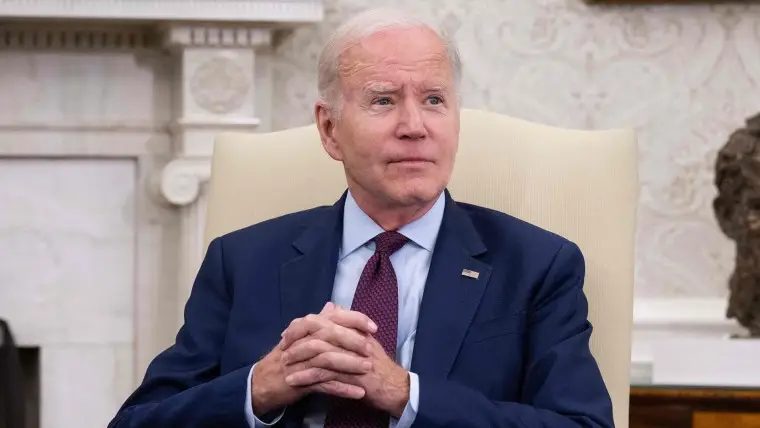
NAACP warns Congress against debt ceiling deal that would 'harm' Black communities
The NAACP's president is warning Congress that any resolution to the debt ceiling impasse that caps spending on federal aid programs would "disproportionately harm Black communities" and that talk of expanding work requirements "must be resoundingly rejected," according to a letter obtained by NBC News.
"These proposals play on racist stereotypes masquerading as sound policy," Derrick Johnson, the head of the civil rights organization, wrote in an open letter to Congress sent Wednesday.
In the letter, he laid out his concerns following reports that legislators involved in debt limit negotiations are weighing proposals that would cap federal discretionary spending on programs such as Medicaid, Pell grants and the Supplemental Nutrition Assistance Program, or SNAP.
Johnson wrote that he was especially appalled by proposals that would toughen work requirements for federal aid programs, something Republicans are pushing for in the talks, which has drawn ire from Democrats.
Democrats likely to put spending cuts on the table during debt limit talks
May 17, 202302:34Johnson called on members of Congress to meet the moment. "To our many allies and partners in Congress who have claimed to support Black Livers, we are grateful for your past support and need you to know: this is a moment of choosing," he wrote.
"Do not accept the false choice between triggering an utterly avoidable economic catastrophe driven by politicians; or imposing costs and new harms on Black communities," he added. "We need deeper federal investments — not cuts — to ensure all Americans can thrive."
"The nation, especially Black America, is watching," he wrote in closing.
The letter was sent Wednesday morning to the White House, as well as the leadership staff in the House and the Senate and other key congressional players in the negotiations.
President Joe Biden has publicly opened the door to some concessions on federal spending, but he has promised to not consider cuts that could push working people into poverty. In a tweet Monday afternoon, he appeared to rule out changes to SNAP.
On Wednesday, Biden said he would not "accept any work requirements that is going to impact on the medical health needs of people," adding he wouldn’t agree to “go much beyond” the work requirements that already exist and which he voted for.
“But it’s possible there could be a few others, but not anything of any consequence,” he added.
"The policies House Republicans are proposing would take away Americans’ health care and increase poverty," White House spokesman Michael Kikukawa said in a statement this week. "Republicans couldn’t pass them into law when they had unified control of government — and the President is fighting to ensure they will not be in a bipartisan budget agreement."
The House Republicans' bill would require states to impose work requirements for some people on Medicaid, the health insurance program for low-income people that was established under then-President Lyndon B. Johnson in 1965 and expanded by the Affordable Care Act, or Obamacare.
The bill would also require able-bodied adults up to age 55 to work a minimum of 20 hours per week or fulfill other criteria to receive SNAP benefits for more than three months every three years.







